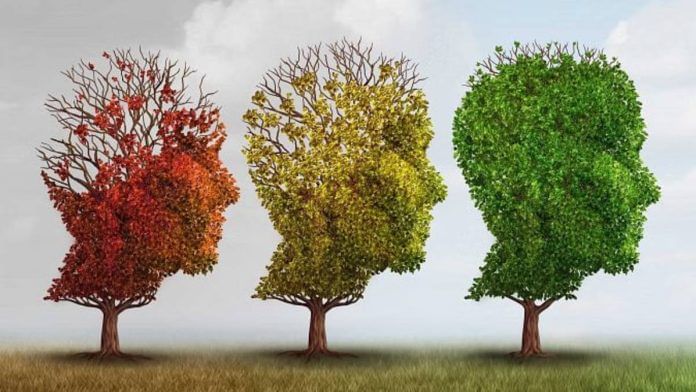New Delhi: A non-invasive and comprehensive test approved by the US Food and Drug Administration (USFDA) to detect Alzheimer’s disease, that aims to bridge the diagnostic gap for the life-altering neurodegenerative condition, has been launched in India for the first time.
The test, Dendrite Dx, launched by Dr Dangs Labs, includes a 15-minute FDA-cleared cognitive assessment, advanced blood biomarkers to detect key proteins suggesting the condition and a proprietary APS2 result through collaboration with a US-based diagnostic lab in patients with signs of cognitive impairment. The Amyloid Probability Score 2 or APS2 ranges from 0 to 100 and indicates the likelihood that a patient has amyloid plaques in their brain.
Though the exact cost of the test is yet to be finalised, it is likely to be priced around Rs 10,000.
Speaking to ThePrint, Dr Navin Dang, founder and director of Dr Dangs Labs, said the test was brought to aid a large number of patients who struggle to get a definitive diagnosis for the debilitating condition.
“Currently, such patients either need lumbar-puncture (an invasive test to draw cerebro-spinal fluid from the spine) or magnetic resonance imaging (MRI) which is indicative. Against this background, this test will fill the gaping unmet need that the country has for detecting Alzheimer’s,” he said.
Alzheimer’s is a progressive brain disease that affects memory, thinking and behaviour. According to experts, detecting it early is crucial—as timely diagnosis empowers patients and families to plan care, access treatment options and maintain quality of life.
It is estimated that nearly 8.8 million Indians older than 60 years have dementia and Alzheimer’s, for which no cure exists currently. Equally concerning is its proliferation in the younger age group and, Dr Dang underlined, many people around the age of 45 years or even lower, too, now report symptoms of Alzheimer’s.
In 2021, nearly 57 million people worldwide had Alzheimer’s, according to the World Health Organization. The disease is typically associated with high levels of beta-amyloids, a specific type of protein whose build-up can seriously impair functioning of several organs such as the brain.
Also Read: The search to cure Alzheimer’s leads to a crash and raises more questions
How test works
The test is indicated for adults with family history of Alzheimer’s or dementia, those with brain fog, memory lapses or poor concentration or lifestyle risks such as diabetes, hypertension and obesity.
It is being offered in three packages: basic, advanced and confirmatory. Following the cognitive assessment, patients, mainly those with a family history, early symptoms or baseline brain health screening, will have option for blood tests which will test for markers such as pTau-217, a highly specific Alzheimer’s marker and amyloid beta 1-42 that is linked to amyloid plaque buildup.
Advanced Dendrite Dx, on the other hand, apart from testing for these two markers will also test for APO E, which shows one’s inherited risk of developing Alzheimer’s disease though does not confirm it, and other specific cognitive tests, apart from tests for general health.
These tests, according to the details shared by the lab, look at different aspects of a patient’s body that directly impact how the brain works—including indicators such as sugar control, inflammation and even kidney health.
“When any of these are off, it can show up as poor memory, low focus, mood changes and a higher risk of long-term cognitive decline,” it said.
Independent studies have found that these blood tests demonstrate high sensitivity (true positives) and specificity (true negatives) for nearly 90 percent samples, suggesting low chances of false positives.
“This makes them particularly valuable in reliably ruling out the disease,” Dr Dang said.
Final confirmation of the disease is done via PrecivityAD2, a test developed by US-based C2N Diagnostics known for brain health testing. The blood test is performed by liquid chromatography tandem mass spectrometry (a highly specialised test to detect certain compounds in samples) that determines whether a patient is likely positive or negative for the presence of brain and neuropathological findings of Alzheimer’s disease.
The final report is given in the form of APS2 score, a key metric used in cutting-edge blood tests for Alzheimer’s.
(Edited by Nida Fatima Siddiqui)




